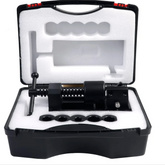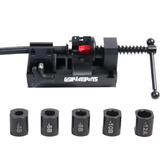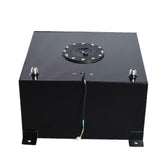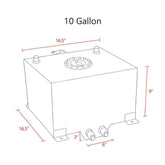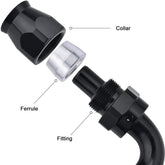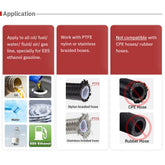Suspension components are the second most important feature of an automobile. They're the messengers between the tires and your brain, giving you confidence that your car will run the way you want it to.
Suspension determines whether your car will oversteer (too much) or understeer (too slow). It determines whether your car feels comfortable on a gravel road, or avoids an inattentive driver when crossing four lanes without turn signals.
Right now, we can't help BMW with an extra turn signal for only $5,000, but we can make sure our suspension components are working and we understand the variants and what they are for!
However, you may have some confusion about shocks vs struts, or maybe someone mentioned that you should upgrade to shocks. Read on for a comparison of these three suspension components.
What is impact
Think about the impact you have as a suspension manager. They control the rate at which the spring compresses and help manage the heat generated by the fluid movement in the shock absorber.
When your car is at a standstill, it will have the best contact surface and your shocks will have no effect. However, when you take that sickly Ford Raptor out of some sweet jumps, your spring compression rates will be helped and restrained by the force of your shock.
There are large shocks, small shocks, performance shocks, and economic changes. Their apps are slightly different, but they all do pretty much the same thing.
Your Honda Civic, which rarely travels, will take a basic financial hit, but a trip to your local auto parts store might cost you $50. On the other hand, you can get extra-long-travel KING suspension components and external fuel tanks to let you race the BAJA 1000.
If you're looking to compare and contrast shock absorber manufacturers, ECCPPAutoParts is worth considering.
What is struts
The uprights carry the brunt of the car's suspension workloads. Think of them as subordinates, as they are tasked with carrying the full weight of the vehicle at each corner so that the vehicle can move up and down according to road conditions.
For struts, the shock absorber is typically located inside the strut assembly and the spring coils around the strut when compressed during normal operation. Pillars are important because they control almost everything a car does when it's on the road.
You should double check the struts every 60-80k miles, or earlier if you live in a salt water area or your vehicle is regularly overloaded. The harder they work, the sooner they will burn out!
What is twisted tooth
Suspension and strut are sometimes used interchangeably when describing the exact same thing. "Coil" "end" shocks. This is basically a pillar, isn't it? Well, not quite.
The shock is a strut with a spring that coils all the way to the top. The only difference here is that the shocks generally offer more adjustability in ride height and damping, and also allow the user to swap out the springs for a more custom spring rate.
I like to think of "struts" as an OEM option that many manufacturers offer their vehicles, while shock absorbers are often used in high-performance variants or modified cars that you see on the way home.
All in all, your suspension is important because it controls how you interact with your car and the road ahead. Be sure to check to see if your car needs new shocks, front shocks or shock absorbers right away. You might be surprised by their replacement cost.

